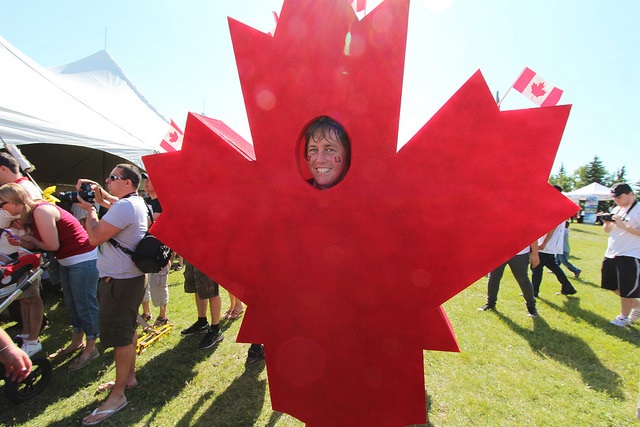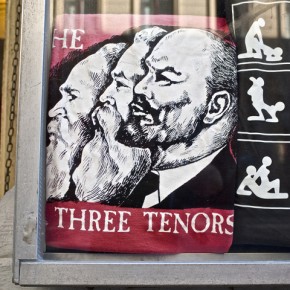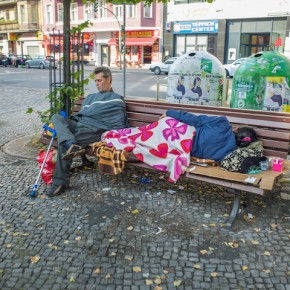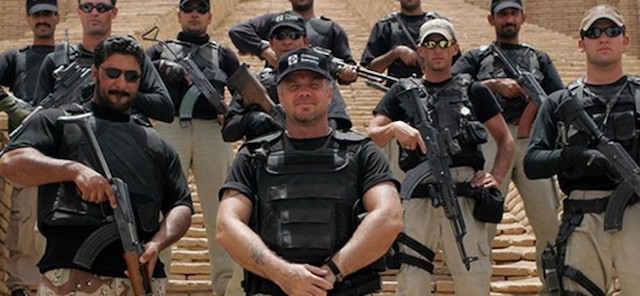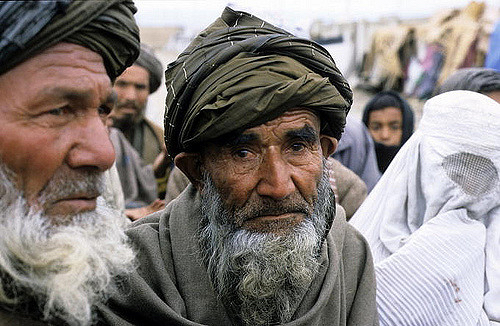The most irritating phrase I have read about yesterday’s terrorist attack in Ottawa has been in Reuters. “The incident, shocking in Canada’s normally tranquil capital,” and so on. As a Canadian who is living abroad, my reaction was: “Sorry, but, what is so shocking about it? And how is Ottawa tranquil no more?”
This phrasing betrays a genuine sense of alarm in the media landscape. After all, terrorist attacks seem like they shouldn’t happen in Canada, which is frequently characterized as being a sleepy country with an enviable welfare state and positive image on the world stage. I anticipate that this tone will dominate news coverage related to the incident over the coming weeks. As I am writing this post, I can hear the pundits going, “Well, I just don’t understand how this can happen in Canada!” Personally, I can, and it is wholly a result of policy decisions both abroad, and within the country.
It isn’t just that Canada has opened itself up to increased terrorist activity as a direct result of its involvement in the War on Terror, although that is a part of it. Despite its friendly peacemaker image, Canada was active in the NATO-ISAF mission in Afghanistan for twelve years, which has arguably been its largest campaign since the Korean War. Canadian officials have been implicated in the torture of Maher Arar in Damascus shortly after 9/11, in a sprawling case that now involves an RCMP probe into foreign officials. Conservative Party leaders in particular were anemic in their response to the imprisonment of Canadian citizen Omar Khadr in Guantanamo Bay. Khadr’s case is particularly horrific, since he was captured at a firefight in Afghanistan a few months before he turned sixteen, and despite an outcry from civic society organizations, Canada had not sought out extradition or repatriation.
The lack of Canadian pressure eventually led to him signing a plea deal in 2010, after eight years of prison. It included Khadr being charged for war crimes and providing material support for terrorism. He was the first person since World War I to be charged with war crimes for activities committed as a minor: the alleged killing of an American medic through the use of a hand grenade and the planting of land mines. Khadr’s case is worth expanding upon because of how deeply it wounds the idea that Canada deserves a moral halo. Before even discussing domestic policy, should a country that effectively abandons a child soldier to be charged with war crimes really be all too surprised that terrorists would hate it? The facts aren’t all in about what happened in Ottawa, but one thing is clear. Based on its foreign policy record, it isn’t particularly hard to convince a potential shooter that the Canadian government is worth attacking.
This is, of course, not a comment on the legitimacy of the attacks. It is an analysis of root causes, and when taken into account with the overall record of Canada at war, the case becomes even more compelling. Glenn Greenwald argues this point effectively in The Intercept about another incident, with much of his piece still remaining true. Can Ottawa really be considered “tranquil” when it is full of people who have now joined the war against ISIS in Iraq, nearly a decade after Jean Chretien famously refused to commit to the previous one? Even beyond its foreign activities, Canada is plagued with enough local problems that extremism can be fostered entirely on domestic issues. At the very least, they can make people easier to brainwash.
The most obvious problem is the Athabasca tar sands, which have become so disruptive to Canadian democracy that even Foreign Policy took notice last year. The pursuit of tar sand wealth has led to massive ecological damage, the suppression of climate scientists, and immense violations of indigenous sovereignty in an already unfriendly political environment. There is also the issue of Canada greatly expanding its military spending, with an eye on Arctic resources, while pursuing relentless budget-cuts. Not to mention pending legislation that will greatly expand CSIS, the Canadian intelligence service, and bringing it dangerously close to becoming as bloated and rogue as its international counterparts. The list goes on, but the overall trend is clear. Prime Minister Stephen Harper is trying to be Canada’s Thatcher: a leader that can break Canadian social democracy and usher in a new era of aggressive policing, environmental deregulation, and free-market economics.
This has been clear since his 1997 speech to the little-known American conservative organization Council for National Policy, which links together the most powerful right-wing social activists in the United States. The CNP speech is when he famously called Canada a “Northern European welfare state in the worst sense of the term, and very proud of it.” He goes on to admire Reaganist policy in contrast, saying that, “There have been some significant changes in our fiscal policies and our social welfare policies in the last three or four years. But nevertheless, they’re still very generous compared to your country.” It should come as no surprise to Canadians that after their government pursued an aggressively market-driven agenda, that was inspired by American neoconservatives, it became far easier to radicalize Canadian would-be terrorists.
There have certainly been benefits for a strata of Canadians, but one of the main effects of Conservative Party policy has been immense levels of economic disenfranchisement and as a result, social estrangement. That is exactly the combination of factors that makes extremism appealing. I am not looking forward to the coming weeks, because serious discussion of these problems will be instinctively brushed aside in favor of uncritical patriotism. Many of us will be told not to “blame Canada.” I am not afraid to blame Canada. Of course we have to blame Canada. Why shouldn’t we? “Canada” means the state that pursued certain policy decisions that left it vulnerable to terrorism. We need to seriously reevaluate them in order to fully confront the problem. My fear though, is that instead, these attacks will recharge the momentum of something in Canadian society that has a vicious conclusion. A dirty and violent petrol-state with a population that futilely tries to find increasingly scarce ways to distinguish itself from similar trends in the United States.
Photograph courtesy of davebloggs007. Published under a Creative Commons License.
